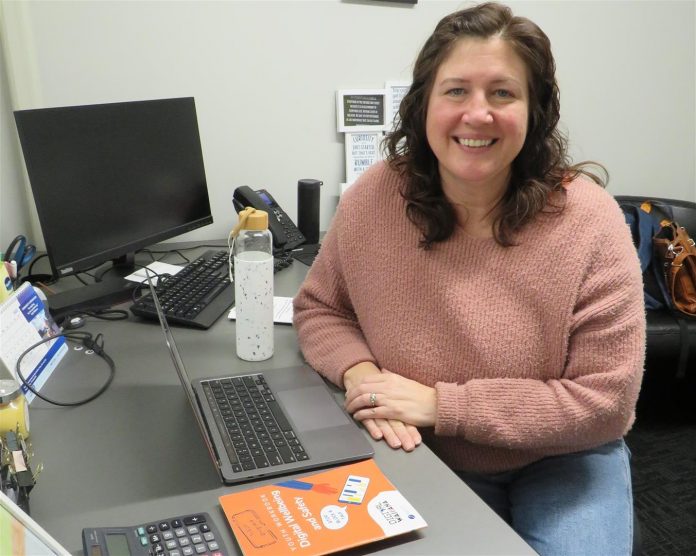STOP, BLOCK & TALK are three words that Digital Waitaha (DW) lead facilitator Neysa Koizumi hopes will effortlessly roll off young peoples tongues when they think about digital wellbeing and safety.
Our Lady of the Snow Year 6 student Maivelle recently designed a new cover for DW Little Orange youth workbook on digital wellbeing and safety. For her efforts she and her school received a financial prize.
The Little Orange book for youth, and the Little Blue book for parents, is available through schools and Citizens Advice Bureau at Community House.
The Little Orange book covers a variety of topics to assist young people to keep safe when using digital platforms and to protect their digital footprint.
The workbooks are used by students when DW goes into local schools. Neysa said the young people ‘‘engage in interactive sessions where they read about a topic, practice what they have learnt, look at strategies on how to use the knowledge they have gained and answer questions to ensure they understand what they have learnt.’’
The parents handbook provides them with conversation starters so they can talk to their youth about ‘‘things like scams, cyber bullying, body images, what data they put online and personal information online’’, Neysa said.
DW wanted a short punchy easy to remember catch phrase and so STOP, BLOCK & TALK was chosen.
The stop, Neysa said, is about ‘‘walking away from something they see on line and don’t like , that made them feel uncomfortable, don’t continue to interact with the other person.’’
Then block the user, if you can report the user, take screen shots.
The final phrase is talk. Once the young person had disengaged from the situation Neysa said ‘‘they thenneed to talk to a trusted adult like a teacher, caregiver or someone else they trust about the what was the issue is.’’
We teach our children about road safety and teaching them about digital safety is just as important, Neysa said.
While the programme is taught in several schools in Mid Canterbury the whole concept is something that needs to be used not just while at school but anytime a young person is engaging with digital material.
The programme is about empowering young people to take control of the content they see and the content they post.
In some households adults give young people devices to watch while they are busy doing other things, but adults need to be aware of what the young person is looking at.
The work of DW is based on research that has been done. It is written and delivered in a way that engages with young people, such as the use of animation.
DW have got young people on board with the material. ‘‘What we present and deliver is youth centred and fit for purpose. It’s not adults telling young people but other young people helping create the resources and reinforcing the message,’’ Neysa said.
DW works closely with schools to encourage students to manage their own digital footprint and well-being, ‘‘to help them protect themselves from hackers and scammers.’’
DW are engaging digital ambassadors from among the students who have already been through the programme to be there for others in their schools and help with the programme in schools.
The programme is proving successful and they are getting support from sponsors and the schools they are working with in Mid Canterbury.
Neysa said just as we teach children to look both ways and how to safely cross the road from a young age, ‘‘we need to be teaching them how to keep safe online and in control of their own line data and footprint.’’




